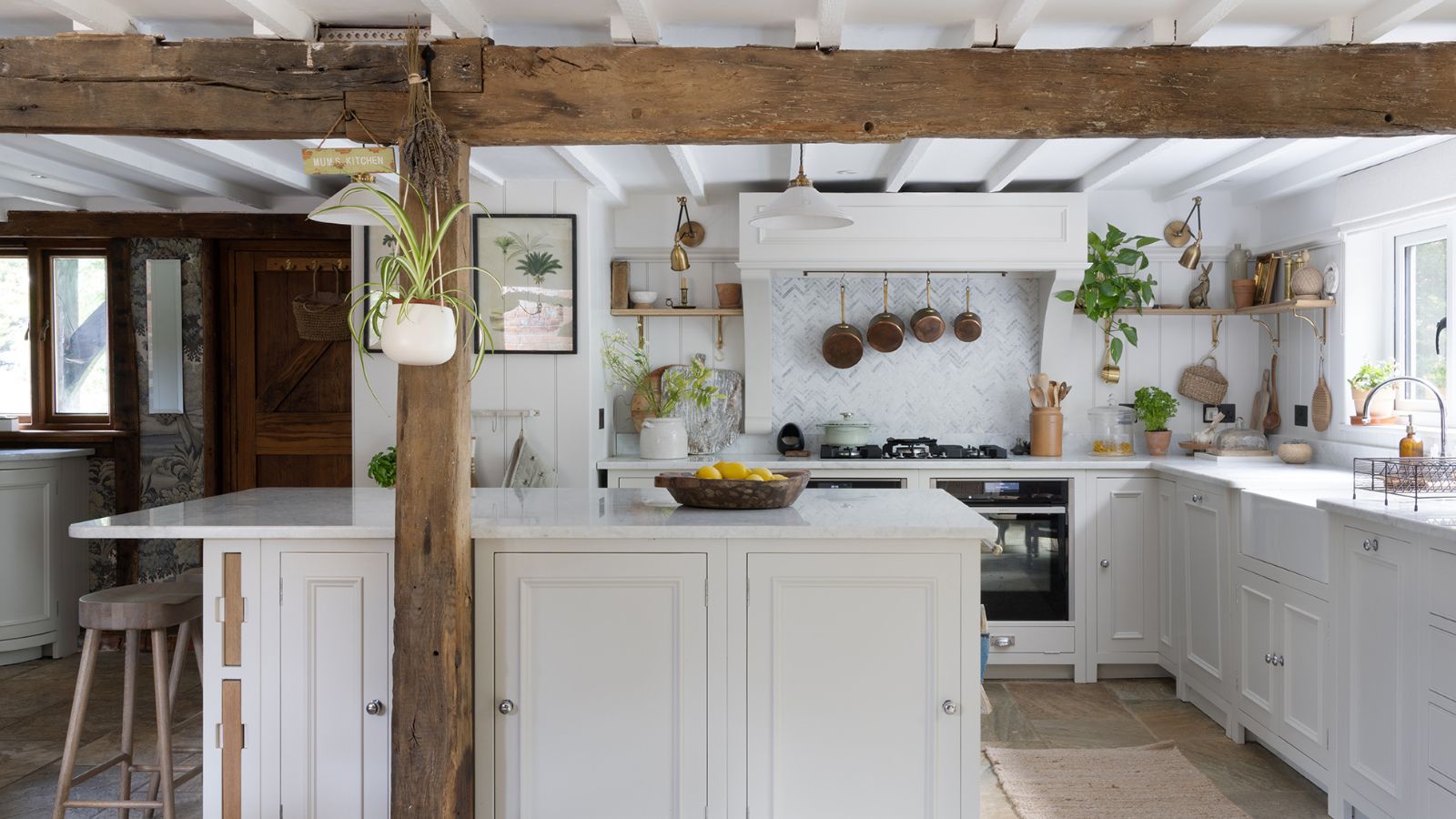
Adding a corner cabinet or two into your home can be the perfect way to fit that extra storage while making the most out of unused nooks in your space. Coming in a vast array of styles, shapes, and colors, there’s bound to be something out there that has appeal and slots right into the vibe of your interior.
Whether you’re looking to find the answer for where to store your kitchen’s evergrowing coffee cup collection, or if your living room could do with a new home for sentimental ornaments, learning how to make the most out of your corner cabinet will work wonders in helping you to achieve your goal.
We spoke to professional organizers to learn their favorite storage ideas, and decluttering tips to consider when organizing your corner cabinet. You’ll be reaping the rewards in no time!
How to organize an awkward corner cabinet
Before jumping into home organization mode, it’s first important to take a moment to think about the storage you're using and why, in itself, it might pose difficulties. A corner cabinet, after all, is typically smaller and a more unusual shape than a regular cabinet, so the organizational struggles you’re facing may not all be down to your stuff! ‘A corner cabinet can present storage challenges because of its unique shape,’ says Ben Soreff, Professional Organizer at House to Home Organizing. ‘Items tend to get lost in their edges, and fall into the trouble of ‘out of sight, out of mind’.’
It can also take people a while to get used to managing vertical storage space – the orientation of most corner cabinets. Working with a taller space with typically deep shelves, backing into the corner of your wall, can make the space harder to access both from a height level as well as from the perspective of finding your stuff.
‘The challenge in organizing a corner cabinet comes from the back of the shelves being deep and typically small,’ says Angie Hyche, Certified Professional Organizer and Owner of Ship Shape Solutions. ‘While they are a great choice to add extra storage in typically wasted space, without using up prime floor space, it can be difficult to store items in such a way that they can be seen and accessed.’
1. Take everything out of the cabinet first
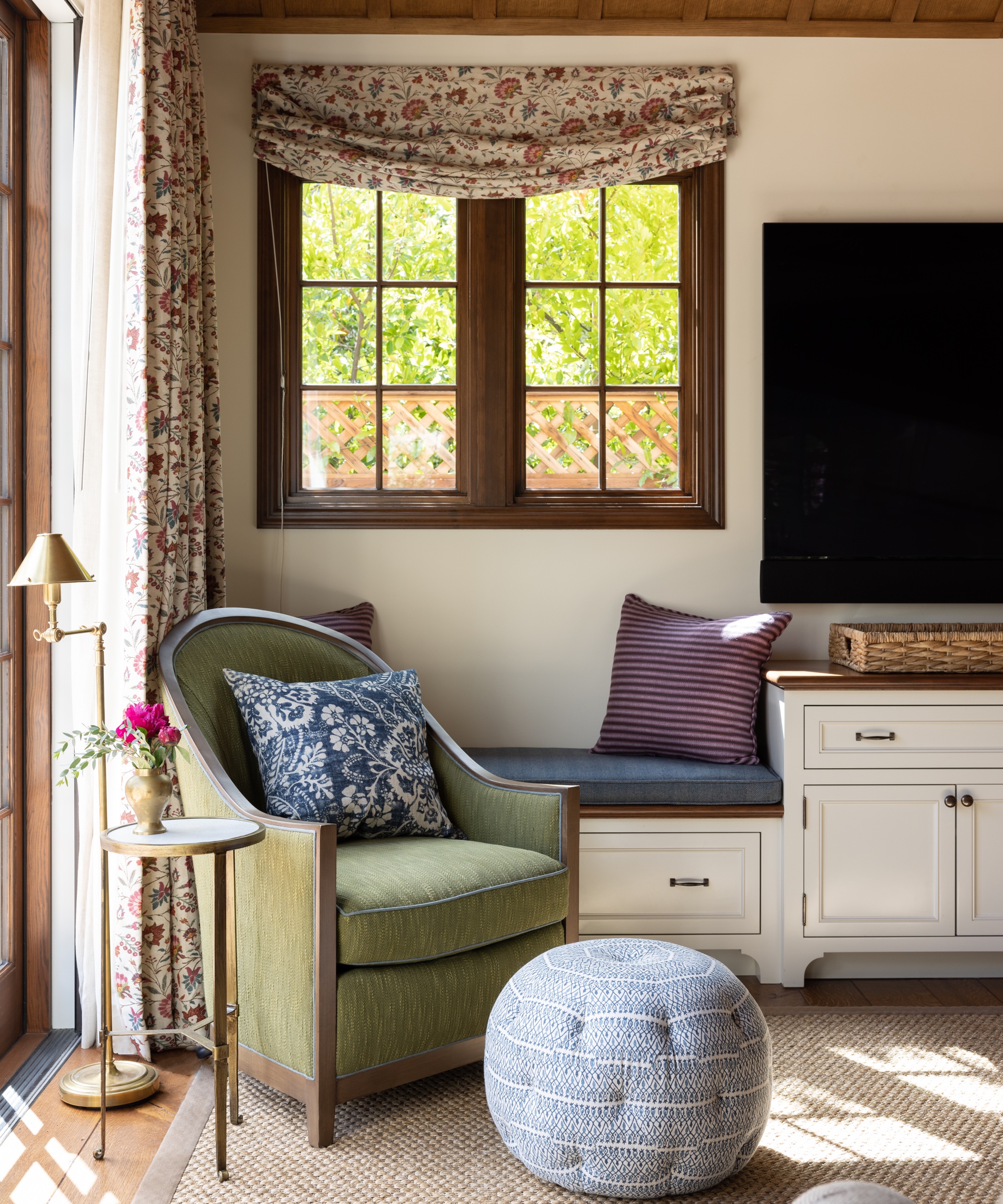
Nothing is going to make organization harder than trying to rearrange everything while it’s still in the cabinet, so before anything, take everything straight out! Starting with an empty cabinet in front of you allows a better opportunity to evaluate what was filling up the space, and shows you the amount of space you have to work with prior to rearranging.
It might be tempting to just reshuffle what was already in the cabinet, but we urge you to go through your belongings instead of just putting them back inside in a new order. There may be items in there that you’ve forgotten about and simply no longer need.
‘As with any space, be sure to declutter anything you’re not using on a regular basis,’ says Angie. This rule may differ if you’re delving into a cabinet filled with sentimental, but while you’re going through the items – regardless of whether you plan to remove any from your life permanently – take a mental note of what is in the space. It’s always useful to know what is where, and some items that get tucked away in your corner cabinet may be better displayed elsewhere in the home.
2. Consider the shape and style of your corner cabinet
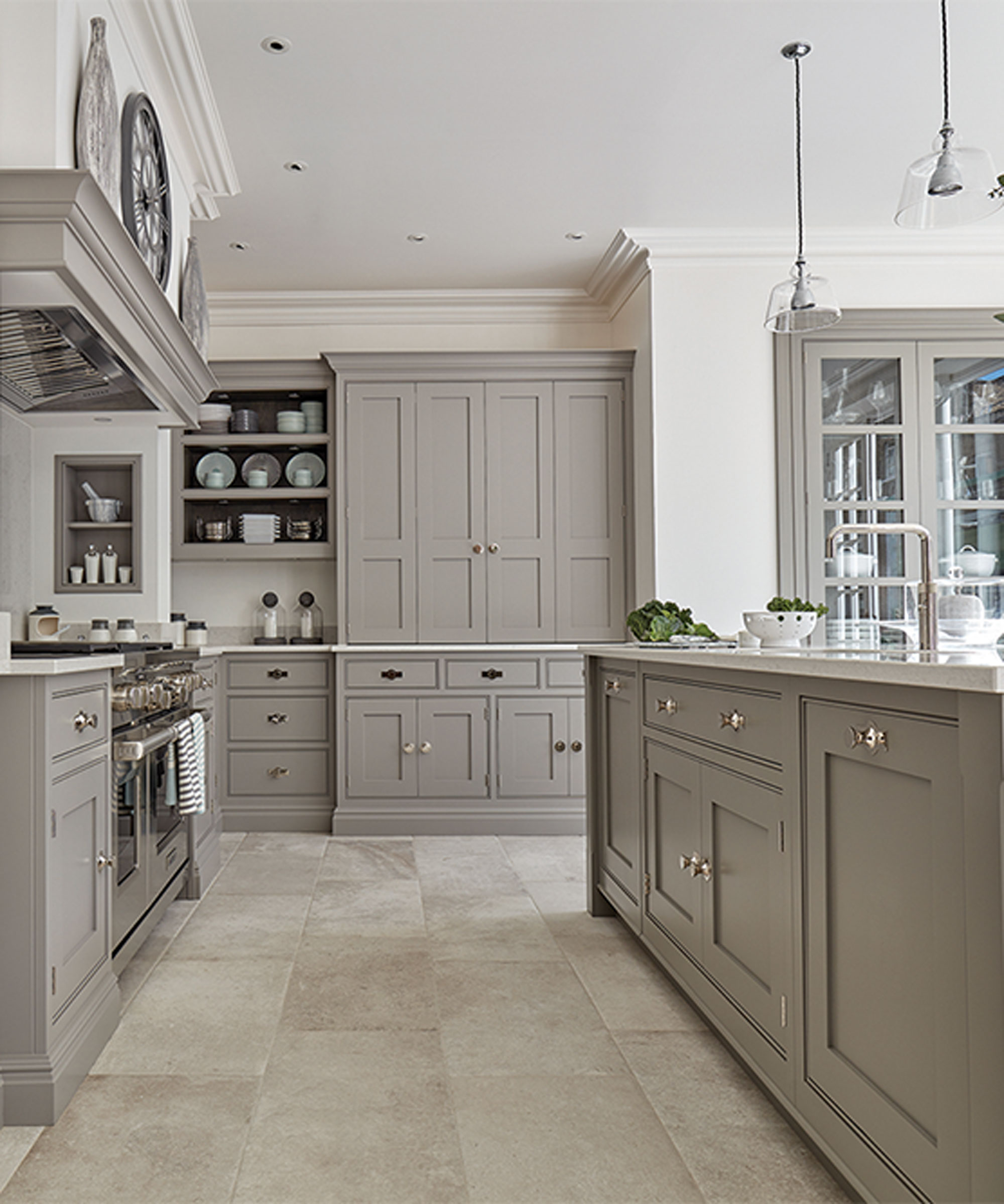
Making the most out of your corner cabinet space means knowing how to best use what you’ve got. If it’s a cabinet with one singular opaque door, you could use it to hide items that otherwise don’t have a home, for instance. This opaque cabinet would not be the ideal space to display ornaments or objects you enjoy seeing day to day.
‘People typically use the top open part of most corner cabinets to display decor or framed photos, and the bottom part with doors for other items,’ says Ben. ‘We suggest using this space for larger items that won’t get lost in the sides of the cabinets’ space, or using containers to store your items for easier retrieval.’
It’s important to decide whether your cabinet is being used for the most suitable purpose and, if it’s not, you will need to take time to decide what else could better fill the space.
3. Use your corner cabinet for lesser-needed items
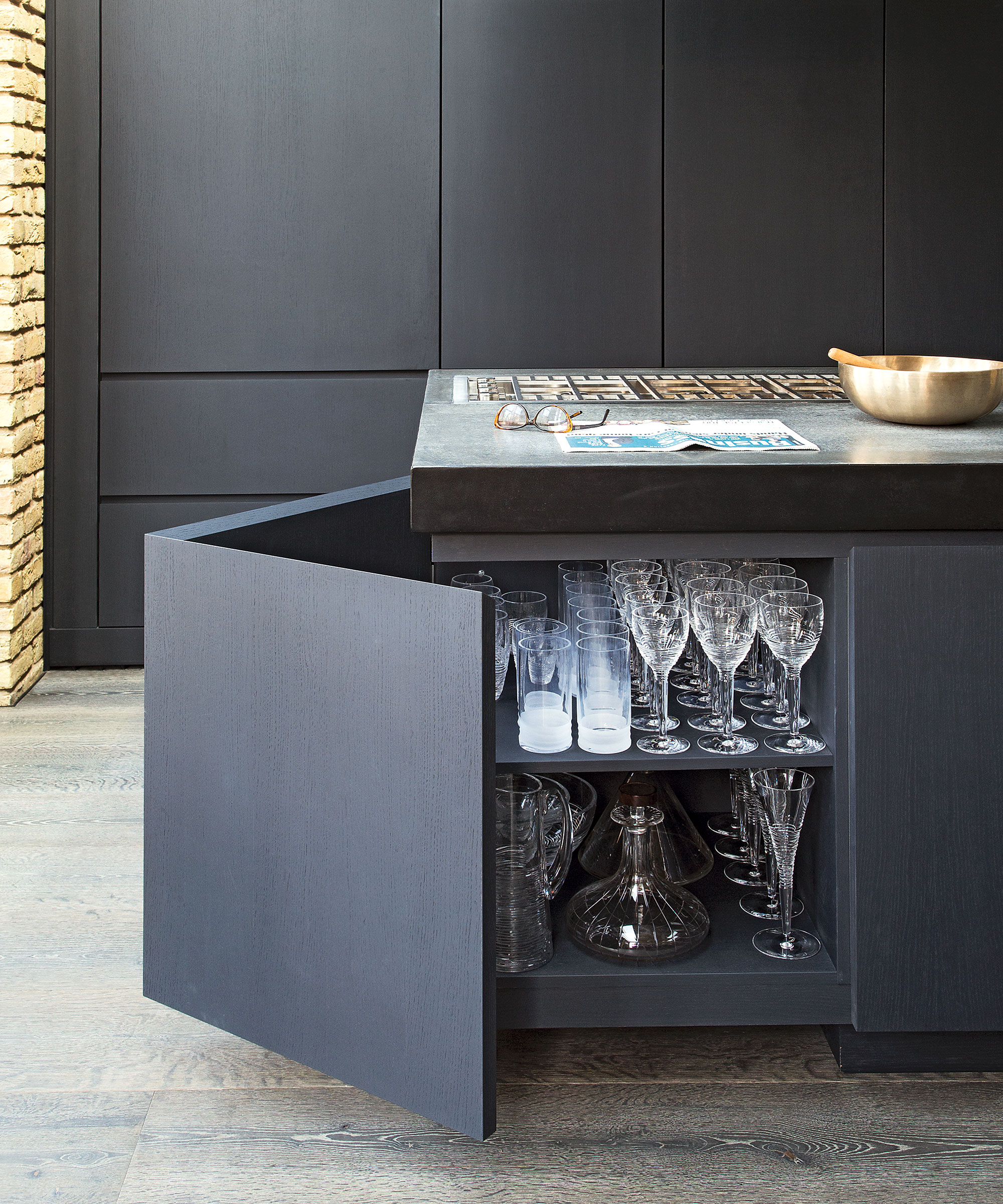
Corner cabinets can be a tricky space to fill, so why not consider using the space for items you barely reach for? Cary Prince, Certified Professional Organizer and Productivity Consultant at Cary Prince Organizing, LLC, shares how her corner cabinet is where items typically go to not be seen again for most of the year.
‘The deep recessed space of a corner cabinet is where my items typically go to perish,’ says Cary. ‘The corner at the very back of the cabinet often goes unused or is the site for many lost items. But this is what makes the space perfect for storing lesser-used items such as holiday stemware, dinnerware, or extra vases, as you won’t be reaching for any of them daily anyway.’
4. Prioritize the order of your items in the cabinet
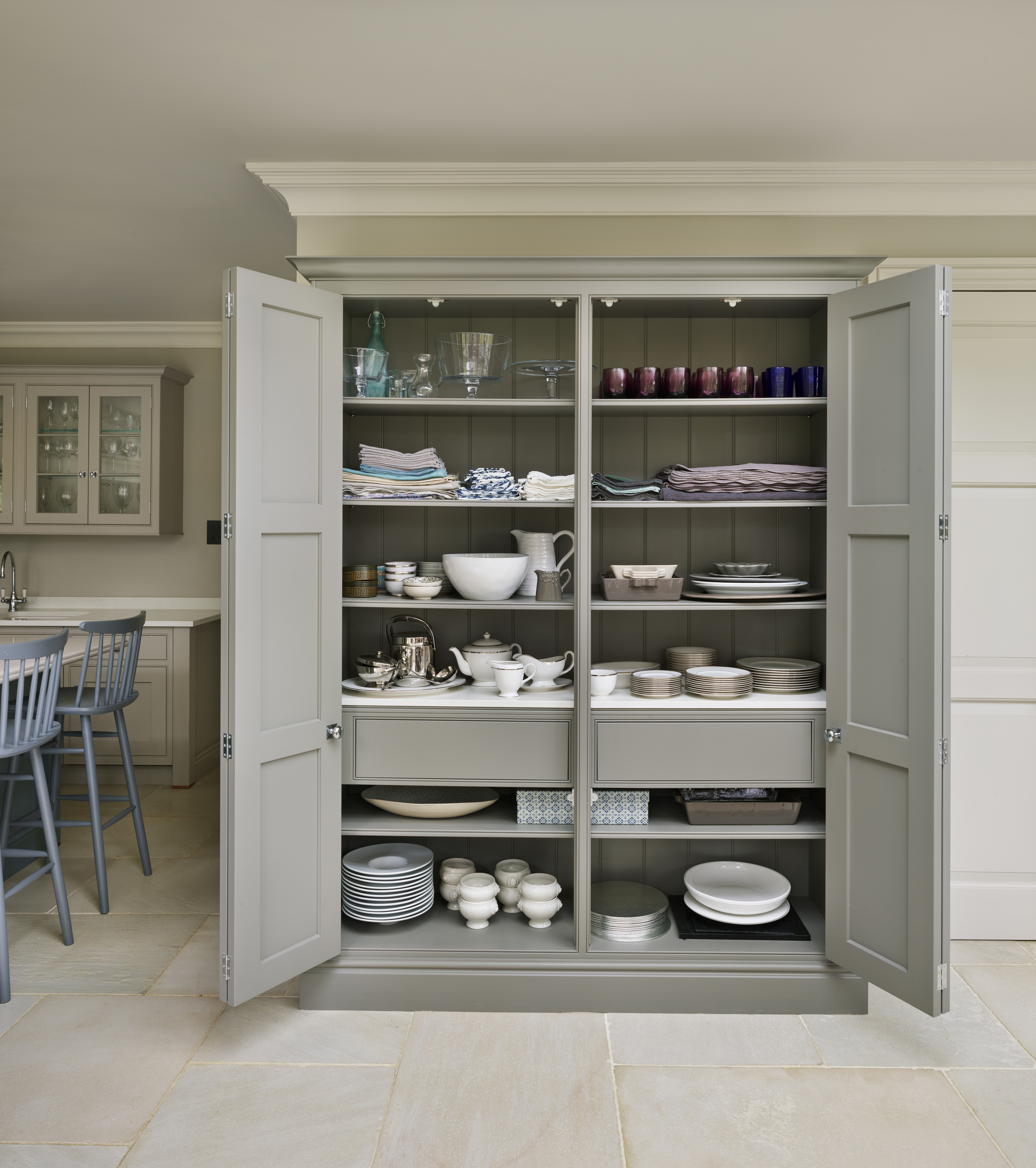
Haphazardly loading up your cabinet will result in items getting lost in the back that may be needed frequently and others getting blocked from your sight. Taking time to prioritize what needs to stay near the front ensures an easier, less stressful finding process the next time you open your cabinet doors.
‘Prioritize items you need most frequently by keeping them as close to the front of the shelf as possible,’ says Angie. ‘You can also place taller items on the back of the shelf and shorter items on the front so that everything can be easily viewed.’
Opting for a turntable or Lazy Susan to sit inside the space can help with this, especially if you’re someone who struggles to keep everything in order. This table allows a person to better reach items in their cabinet space, as it will swivel items from the back to the front.
Cary recommends bringing the largest possible turntable into your cabinet space: ‘Get the largest turntable that will fit in your corner cabinet to have the maximum diameter of space available to store your items,’ says Cary. ‘Measuring from the front of the cabinet to the back corner will help you to figure out what size your cabinet requires.’
5. Try not to pressure yourself
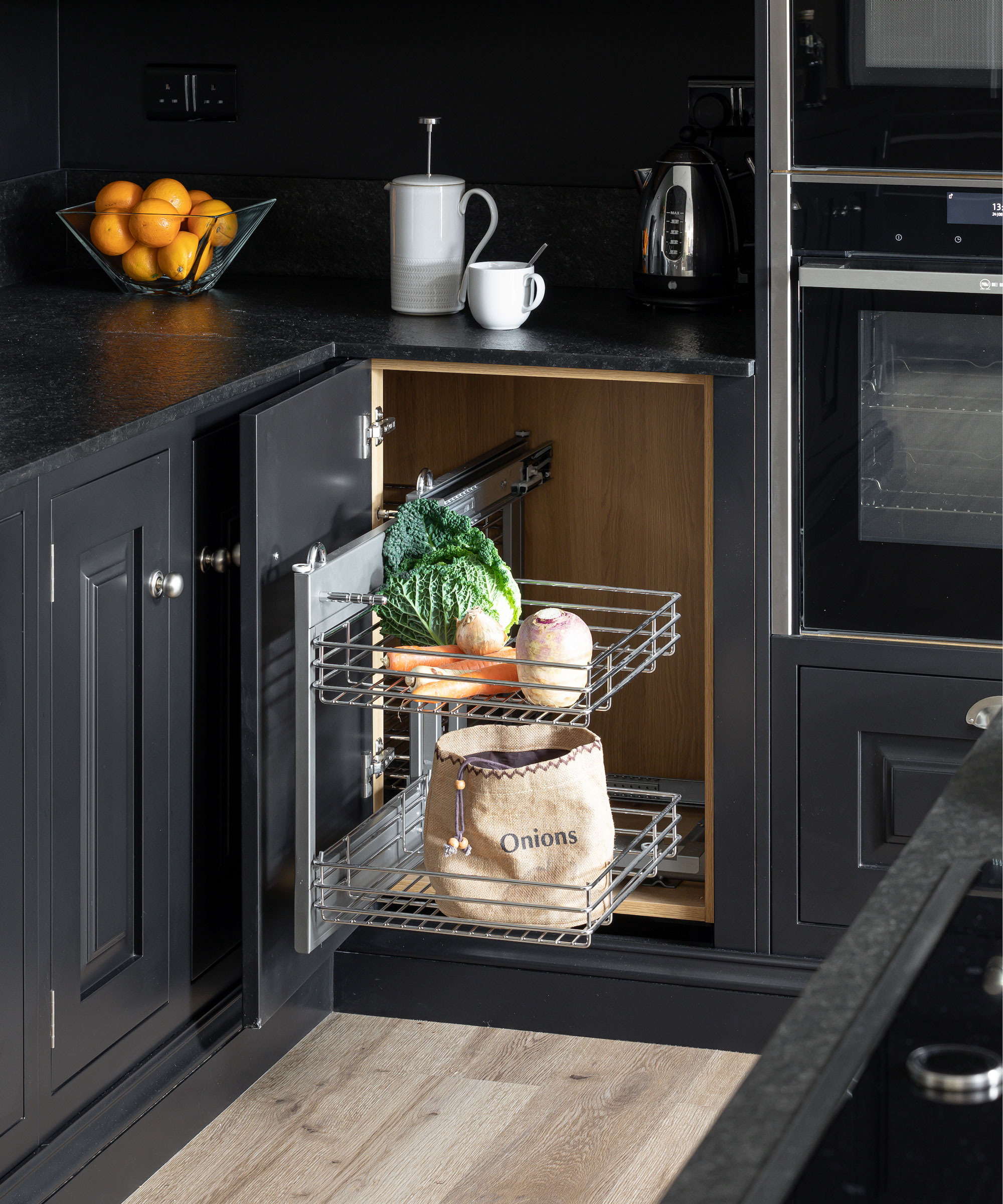
Angie importantly discussed with us that it may be a matter of trial and error to find out what arrangement works best for your cabinet and individual needs. Therefore, try to take it easy!
‘Don’t put too much pressure on yourself to get your corner cabinet organization right immediately,’ says Angie. ‘Play some music, get family members involved, and have fun with it. I recommend arranging everything in a way that seems most functional and then, after a few days, deciding what’s working and what isn’t. Tweak as necessary until it’s exactly what you need.’
Cary leaves us with this final thought: ‘The principle of organizing a corner space, be it in a closed cabinet or on an open shelf, is universal: to optimize the valuable additional space you are gaining with that corner.’
So, whatever you decide to use your corner cabinet space for, we hope it serves you well!







